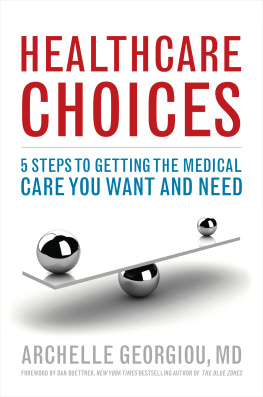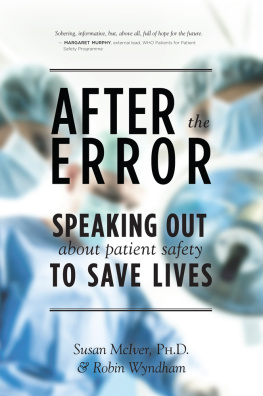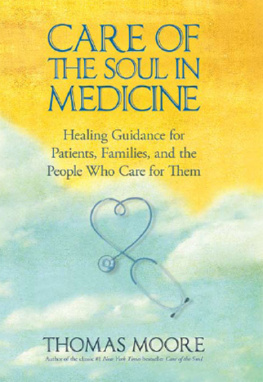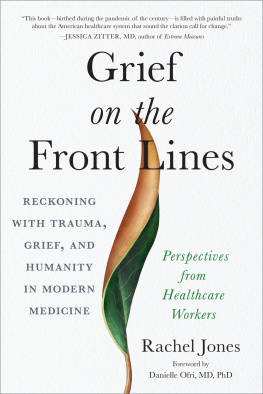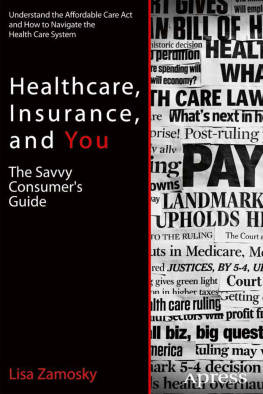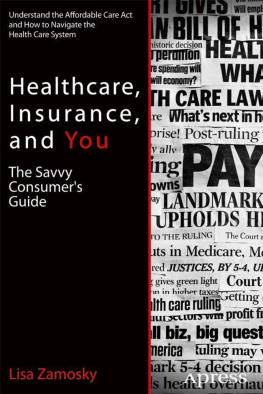NEW YORK UNIVERSITY PRESS
New York
www.nyupress.org
2020 by New York University
All rights reserved
References to Internet websites (URLs) were accurate at the time of writing. Neither the author nor New York University Press is responsible for URLs that may have expired or changed since the manuscript was prepared.
Library of Congress Cataloging-in-Publication Data
Names: Gengler, Amanda M., author.
Title: Save my kid : how families of critically ill children cope, hope, and negotiate an unequal healthcare system / Amanda M. Gengler.
Description: New York : New York University Press | Includes bibliographical references and index.
Identifiers: LCCN 2019004712 | ISBN 9781479863938 (cloth) | ISBN 9781479864621 (paperback)
Subjects: LCSH : Critically ill childrenMedical careUnited States. | Critically ill childrenFamily relationships. | Parents of terminally ill childrenPsychology. | Catastrophic illnessSocial aspectsUnited States. | Child health servicesUnited States. | Health services accessibilityUnited States.
Classification: LCC RJ47.7 .G46 2019 | DDC 618.92/0029dc23
LC record available at https://lccn.loc.gov/2019004712
New York University Press books are printed on acid-free paper, and their binding materials are chosen for strength and durability. We strive to use environmentally responsible suppliers and materials to the greatest extent possible in publishing our books.
Manufactured in the United States of America
10 9 8 7 6 5 4 3 2 1
Also available as an ebook
Jamilla Finleys daughter, Teyariah, was six years old when she was diagnosed with stage-IV neuroblastoma, an invasive nervous system cancer. Once the doctors told me it was cancer, I think I fainted, she told me. I dont even remember what happened from there because my nerves were tore all to pieces.
A black mother of three in her mid-thirties, Jamilla quit her job as a security guard and took a leave of absence from her online MA program in order to transfer Teyariahs care from a regional hospital near their home to Kelly-Reed, an elite private university research hospital several hours away. At Kelly-Reed, Teyariah could undergo stem-cell transplantation and receive monoclonal antibody immunotherapy. Before coming to Kelly-Reed, Jamilla was often disappointed by her interactions with the physicians at the regional hospital where Teyariah was first treated. She felt that she couldnt talk with them or bond with them, and recalled that they only told her vaguely, Oh, the survival rate is 30 percent, we might can make it 60 percent. I mean, can you tell me something else? This limited engagement in her daughters care left Jamilla unnerved, and perhaps more importantly, unmoored.
Kelly-Reed offered Jamilla a stronger, more solid anchor to hold onto, a line to hope for her daughters recovery. At Kelly-Reed, Teyariah had access to more sophisticated treatments and doctors and nurses who Jamilla believed truly cared about her family. Teyariahs primary physician at Kelly-Reed provided Jamilla with more information that boosted her confidence in her daughters care. Dr. Fadian, she recalled, he was like, This is what we can do to make her survival rate more... I mean he actually broke everything down to me [so] that I could understand and I appreciated that.
But obtaining these treatments at Kelly-Reed required them to spend many months in residence. Teyariahs father lost his job as a factory supervisor when his time away from work exceeded the maximum amount protected under the Family and Medical Leave Act (FMLA). This left the Finleys with income only from his unemployment check, compounding their financial struggles. On top of her fears for Teyariah and the increasing financial strain, Jamilla worried that she wasnt being a good-enough mother to their two-year-old, who was with them at Kelly-Reed, or her fourteen-year-old, who was back home, living with Jamillas sister and continuing to attend school.
Its a lot of stress. I havent had no rest, Jamilla confessed. Ive been going every day since last year, which its affected my body [too]. Jamilla lived with a continuous pain in her abdomen that her doctor could find no physical explanation for. During particularly acute moments, she explained, I feel like sometimes I might be passing out.
Jamilla dreaded going to the hospital, anticipating the heartache of witnessing not only her daughters pain and suffering, but that of the other children she would see there. I cry. Who wouldnt cry? I cry a lot. I cry in the shower, she told me. But Jamilla worked hard to keep her feelings of fear and despair under control, and most of all, out of the view of her daughter. I have to keep my composure, she explained with conviction. A child looks at the parent, so if Im frustrated and Im upset, shes going to get upset. So whats that going to do to her? It will make her temperature go up, make her worry about not only meshell be worried about herself. So I try to stay calm and relaxed. If I need to cry, I step out, and then I come back in. Keeping her emotions in check and maintaining an unwaveringly hopeful presence was serious business for Jamilla. Failing to do so, she believed, might directly harm her daughters health and wellbeing. The stakes could not be higher.
Jamilla recalled only one time when Teyariah herself had openly expressed feelings of hopelessness. Jamillas anguish was palpable as she recounted her daughters words: Mama, Im so tired. Im tired of all this. I just want to give up and quit. Jamilla continued: You dont even know what to tell your own child when she tells you that.... Shes not but seven years old. Thats the only time Ive been through that, but I told her, Youre not going to quit; youve got to keep fighting, and she said, Okay Mama, Ill try.
The emotional burden Jamilla carried was immense. But she was determined to remain unflaggingly positive for Teyariah and her entire family. Hope was the fuel that allowed her to do the emotion work required to accomplish this, and to keep moving forward through the myriad tasks involved in shepherding her daughter through the long treatment process. Its overwhelming, she admitted matter-of-factly. But youve just got to believe and hold on.
Hope Is a Thing with Feathers
Nora Bialy stood at the counter in the middle of the large, brightly lit Ronald McDonald House kitchen washing strawberries, dunking them in melted chocolate, and placing them haphazardly on long sheets of waxed paper to cool. A petite, white, forty-one-year-old mother of four, with short dark hair, dressed comfortably in jeans, sneakers, and a blue floral print cardigan, Nora wanted to get her sixteen-year-old son, Benjamin, to eat as many of them as she could. He could use the calories, she told me. A former dietician by training, Nora had been keeping a close eye on Bens nutritional status for some time now.



